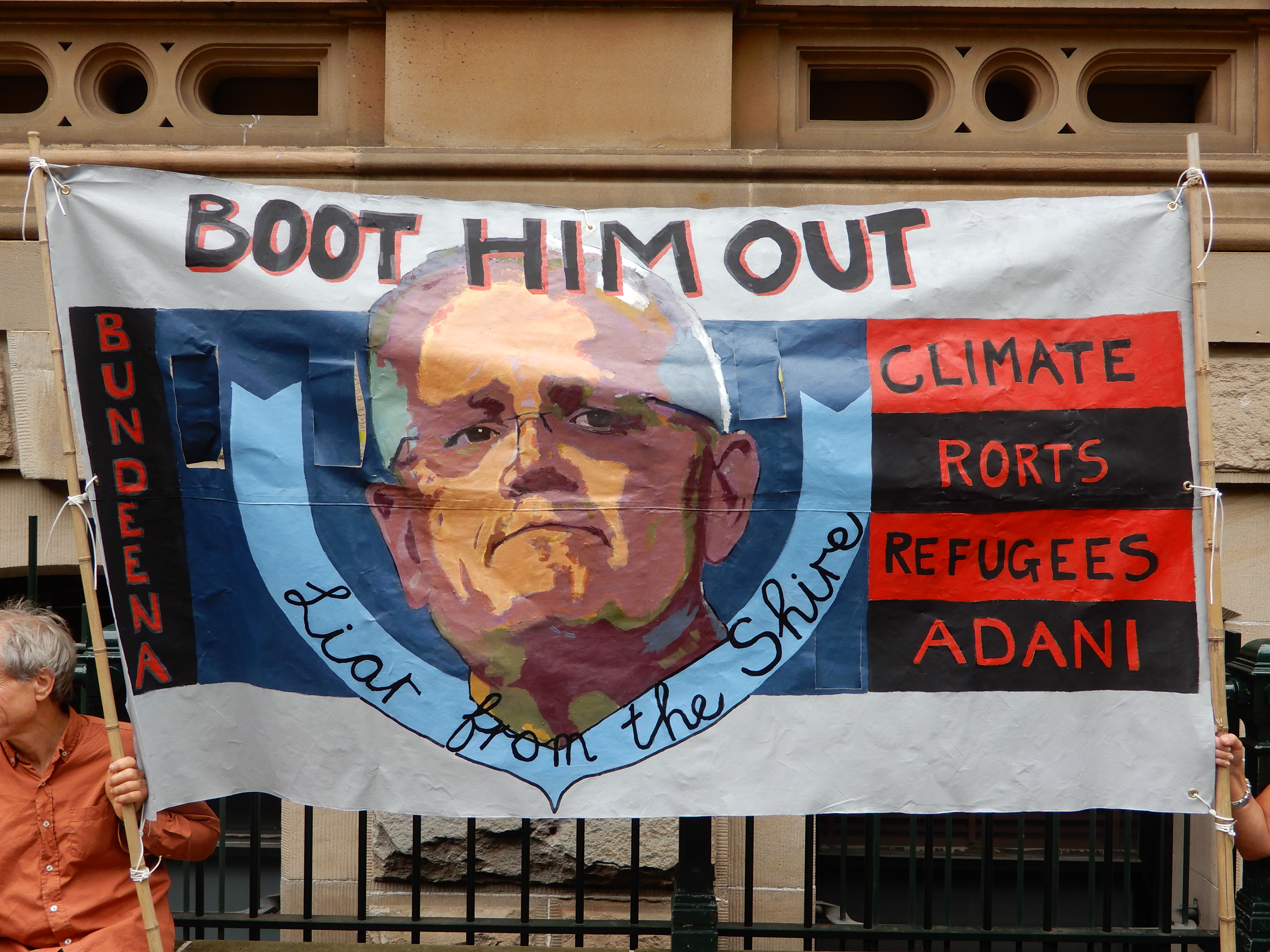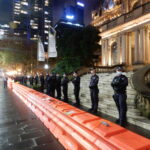Taking Political Action in a Time of Mounting Crises

The last few years have been tumultuous to say the least. For Australians, the 2019-20 summer of bushfires brought the understanding that significant change is upon us, while the onset of the COVID-19 pandemic has further shattered our expectations that we can bank on what’s coming.
To accompany the great crises that nature is unleashing upon us, we have a federal government that, rather than acting to avert these dangers, is seeking to further compound them by investing in more fossil fuels, as well as with its slow drip vaccine rollout that sees Victoria back in lockdown.
Over its time in office, the Abbott/Turnbull/Morrison government has continued to legislate dozens of national security laws that have eroded the rights of all, with the pretext being to counter some far-off Islamic terrorists, while it also permitted Anglo grassroots terror to fester in the suburbs.
These days, the PM and newly-minted defence minister Peter Dutton are shifting the focus from a perceived Middle Eastern threat to a coming war with China, which, if entered into, would serve to fill US government coffers, as well as body bags with military and civilian dead.
And in these times of uncertain futures, a question that’s increasingly showing up in the comments section of articles posted on social media is around what individuals themselves can do in the face of these rising threats to our freedoms and ways of life.
But whilst it may all seem futile, there are a number of simple actions that can be taken, which do forge change, as well as serve to eradicate those feelings of despondency.

Organising is key
A lot of people tend to dismiss public demonstrations as ineffective. The thinking behind this being that the small percentage of the overall population that actually fronts up to them is hardly enough to effect change.
However, an easy rebuttal of these assertions is the ongoing and concerted efforts that governments make to legislate against the rights of citizens to protest.
These laws are drafted because protests do force politicians to act, and they also signal to the broader populace that there’s an issue at hand.
The Morrison government is right now moving to pass legislation that would stifle the voice of civil society groups via the threat of revoking their charity status. And the NSW Coalition government has been passing a series of laws to silence dissent since 2016.
Indeed, mass civil disobedience has succeeded in bringing about significant change throughout modern history.
Labour movements demonstrated to see the eight hour working day established. The suffragettes saw women gain the vote early last century.
There were Gandhi’s satyagraha actions, as well as the anti-Vietnam War movement, which brought changes in consciousness beyond their immediate aims.
In Australia, organising civilian street rallies has put the Black Lives Matter, Aboriginal deaths in custody and women’s justice movements front and centre over the last year.
In the past, mass Australian protest movements served to bring government action in response to the plight of the East Timorese, as well as raise awareness around the lies shrouding the Gulf War at the turn of this century.

Adding your signature
Another effective way to bring about change is the creation of petitions, the collection of signatures, or the simple act of adding your own name to a pre-existing petition.
This is yet another method of giving voice to a collective concern that’s often downplayed.
One highly successful petition from recent memory was that initiated by Kevin Rudd, which was calling for a Royal Commission into media diversity. And while it did have a former PM launching the agenda, it wouldn’t have gotten as far as it did without the over half a million signatures it garnered.
Following the presenting of the petition to parliament, the Senate agreed to hold an inquiry into press freedoms.
It recently delivered its report, which calls on government in the future to prove there’s been harm caused by the publication of classified materials before launching criminal investigations.
So, even though the Royal Commission wasn’t called, the multitude of signatures did see the government respond to the want of the people.
Currently, there’s another online petition calling on the federal government to condemn Israel’s human rights abuses against Palestinians.
If enough citizens sign this document, it would likely force some sort of response from the Morrison government, other than its blatant denial of the atrocities taking place.

Bugging your local member
Despite their substantial efforts to give off the impression that it’s not the case, the Morrisons, the Duttons and the Berejiklians of this world, actually work for the people.
An effective method of having your local MP display this is by contacting them about a concern you might have and getting them to act upon it.
This can be done in letter form, email or by picking up the phone and giving their office a call. And the more people that do it, the better.
Members of parliament like to retain their seats, so if enough people in their constituencies raise an issue to the point that they perceive that not acting could threaten their re-election, then they’re more than likely to act.

Use your vote wisely
Struggle is a constant. And as changes transpire that seem to be completely out of our control, taking these small political steps not only serves to bring about reform, but it can also personally empower the doer of such acts, which, in turn, can lead to further action.
Complacency, as well as the belief that these acts don’t make a difference, is what politicians depend upon when continuing to draft new draconian laws and policies that work to turn a profit for the elites, whilst disempowering the many.
Other methods that can bring about change include talking about the issues with those around you, writing and publishing to raise public awareness, as well as making submissions to parliamentary inquiries.
Of course, even with the persistent attacks upon civil liberties, in a democracy like ours, there’s always the act of casting one’s vote.
And with the coming election, and the general slide towards authoritarianism, many commentators are making clear that now is the time to make your vote count.
As former Australian diplomat Bruce Haigh warned Sydney Criminal Lawyers last week, our nation is fast becoming “a single party state”, and if it elects another Morrison government, it’s likely it will move to legislate away many of the existing rights we take for granted.







